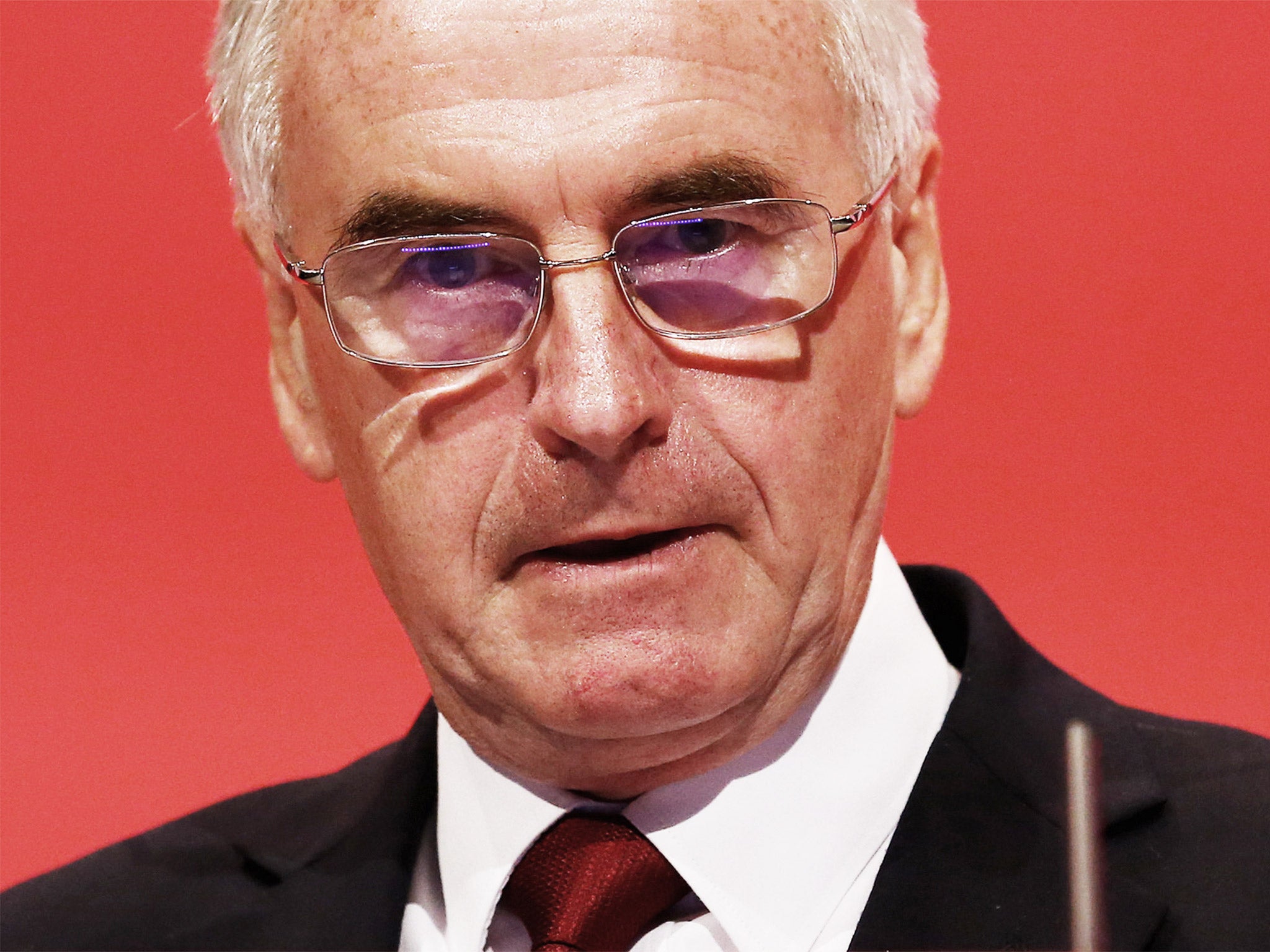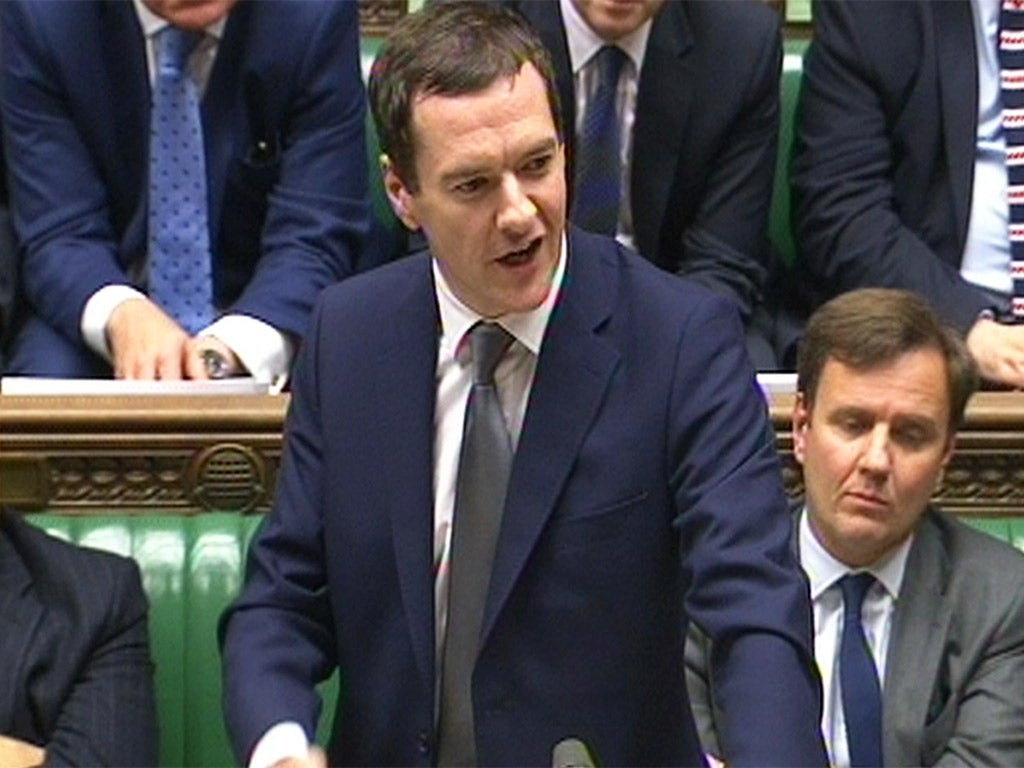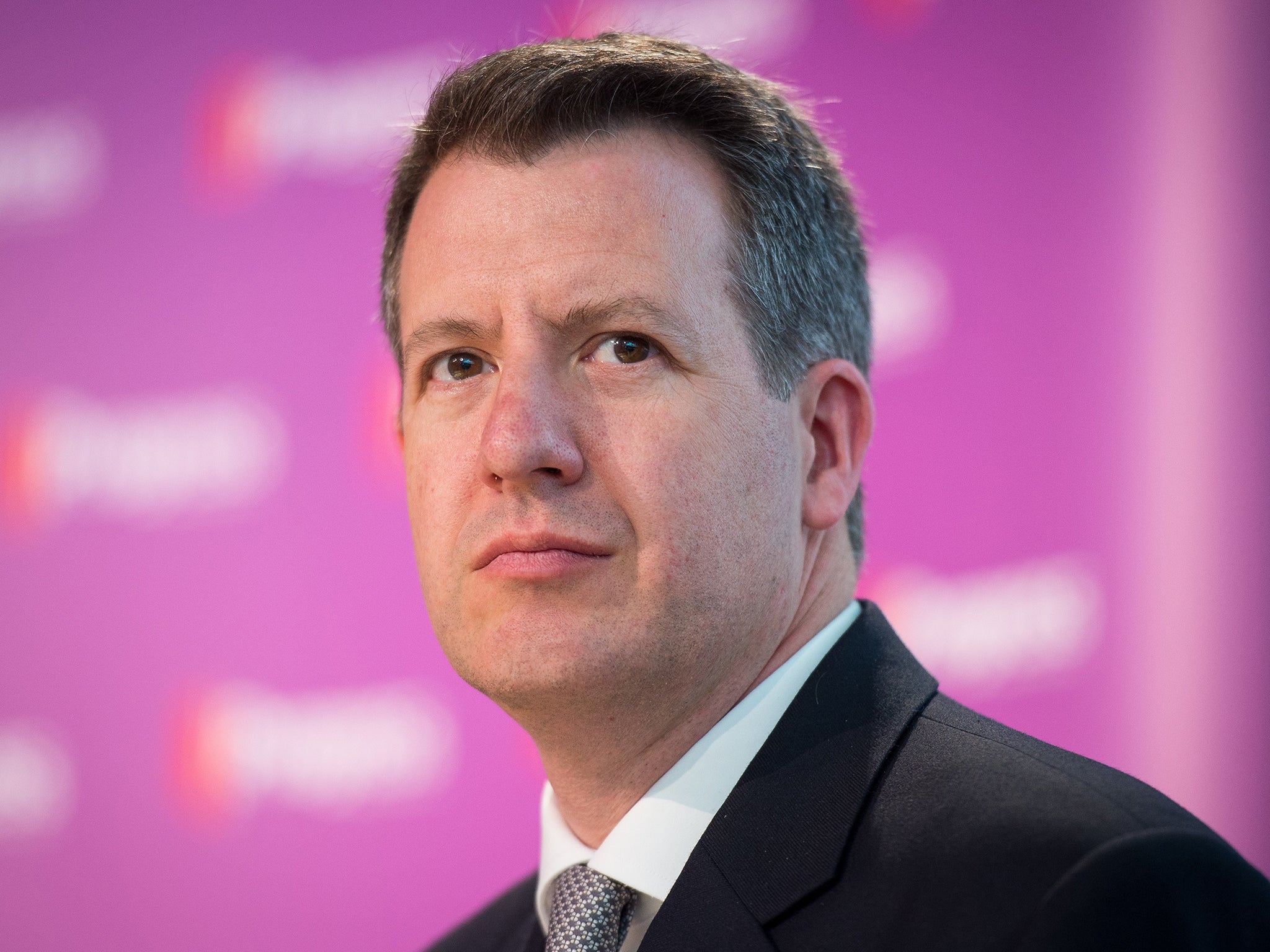John McDonnell admits 'embarrassing' U-turn over key economic policy as new Labour leadership hit by first rebellion
Party whips say 21 of its MPs failed to follow instruction to vote against Chancellor George Osborne’s proposal for a 'fiscal charter' requiring governments to run a budget surplus by 2019

Your support helps us to tell the story
From reproductive rights to climate change to Big Tech, The Independent is on the ground when the story is developing. Whether it's investigating the financials of Elon Musk's pro-Trump PAC or producing our latest documentary, 'The A Word', which shines a light on the American women fighting for reproductive rights, we know how important it is to parse out the facts from the messaging.
At such a critical moment in US history, we need reporters on the ground. Your donation allows us to keep sending journalists to speak to both sides of the story.
The Independent is trusted by Americans across the entire political spectrum. And unlike many other quality news outlets, we choose not to lock Americans out of our reporting and analysis with paywalls. We believe quality journalism should be available to everyone, paid for by those who can afford it.
Your support makes all the difference.John McDonnell, the shadow Chancellor, has confessed to an “embarrassing” U-turn over a key economic policy as the new Labour leadership was hit by its first parliamentary rebellion.
The party’s whips said 21 of its MPs failed to follow an instruction to vote against Chancellor George Osborne’s proposal for a “fiscal charter” requiring governments to run a budget surplus by 2019. They claimed the number defying Jeremy Corbyn and Mr McDonnell on the issue looked “less than expected”.
Amid uproar in the Commons, Mr McDonnell admitted blundering over whether to support Mr Osborne’s proposal for a “fiscal charter” requiring governments to run a budget surplus by 2019.
Two weeks ago he announced Labour would back the plan, only to reverse his position on Monday, explaining he had changed his mind and was instructing MPs to oppose the charter.

The about-turn brought accusations of incompetence from many Labour MPs, who also warned the new stance would undermine the party’s reputation for economic competence.
Mr McDonnell addressed the U-turn head-on, telling MPs: “Embarrassing, yes, of course it is. But a bit of humility amongst politicians never goes amiss.
“When the circumstances and judgments change it is best to admit to it and change as well.”
The charter vote was passed by 320 votes to 258, a majority for the government of 62. The scale of the Labour revolt came as a relief to the party’s whips who had mounted a major drive to urge dissenters to fall into line.
Between 30 and 35 Labour MPs were thought to have been absent in the vote, but about 15 had permission to be away, meaning about 20 consciously refused to toe the party line. The abstainers included the Labour leadership contender Liz Kendall, as well as the former shadow Cabinet ministers Tristram Hunt, Chris Leslie and Ben Bradshaw.
Opening the fractious debate, Mr Osborne mocked his opponent’s change of heart, telling the Commons: “We were told he would be a divisive figure. I just didn’t realise the split would be between two opposing views he held himself.”
He said: “To call the whole episode a shambles is like saying the Charge of the Light Brigade didn’t achieve all or its objectives.”
Mr Osborne told MPs: “The position adopted by Labour on this measure sends the wrong message to the general public.
“The people who suffer most when governments lose control of the public finances are precisely the most vulnerable in society, they are precisely the people who lose their job, who get cast out of work.
“It's not the trade union barons who lose their jobs when the economy fails. It's not the richest in society who pay the price, it is the poorest in society.”
I will not be told to be loyal or to shut up by people with double standards
Mr McDonnell retaliated by accusing Mr Osborne of playing political games with his plans by trying to trap Labour into being “deficit deniers” if it opposed the charter or supporting cuts if the party supported it.
He said he had changed his mind “not on the principles of the need to tackle the deficit but on the parliamentary tactics for dealing with this charter”.
Mr McDonnell argued that the charter would be used to “justify cutting services and cuts to families across the UK”.
Ahead of the vote, several Labour MPs said they would defy a party three-line whip to vote against the charter and would abstain.
The previous shadow Chancellor, Chris Leslie, said he was “very clear we should not turn our face against a surplus”. Taking a swipe at Mr Corbyn’s record of rebellions, the Ilford South MP Mike Gapes said: “I will not be told to be loyal or to shut up by people with double standards.”

Chris Evans, the MP for Islwyn, said: “I cannot in good conscience support a position which I do not agree with, which has been inconsistent with existing Labour policy and which has not been properly explained by the shadow Chancellor and Labour leadership.”
The SNP’s economics spokesman, Stewart Hosie, described Mr Osborne's plan to run a surplus of £40bn by 2020, with much of the burden falling on spending cuts,as the “economics of the madhouse”.
He accused the Chancellor of cutting £40bn more than necessary to achieve the aims of the charter and giving tax breaks to the wealthy such as inheritance tax cuts while leaving many lower earners £1,300 worse off through tax credit cuts.
Join our commenting forum
Join thought-provoking conversations, follow other Independent readers and see their replies
Comments